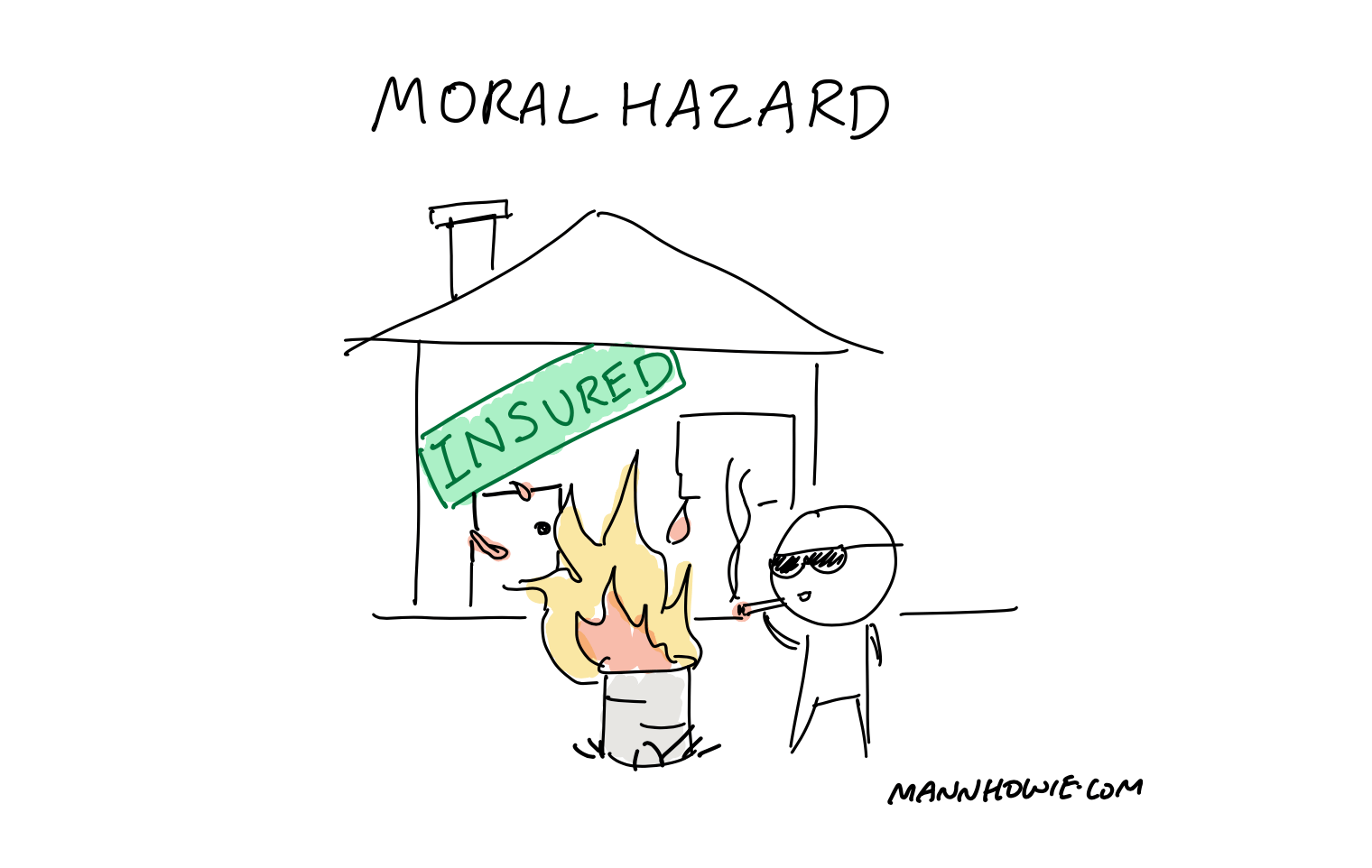Moral hazard in startups - 3 examples
3 minute read | Feb 7, 2023
management
Moral hazard is an economic term where one person has an incentive to take greater risks because someone else will bear a greater share of the losses.
 It originates from the world of insurance where as people increase coverage, their risk taking behaviour also increases.
It originates from the world of insurance where as people increase coverage, their risk taking behaviour also increases.
Here are 3 examples of moral hazard in startups and how to navigate:
1. Hiring Quality Assurance managers
Startups hire dedicated QA managers to: test features, review support calls, train sales teams, edit marketing content.
QA is evil. QA managers need to justify their jobs. They exist because others don’t learn from their mistakes.
If you have QA managers then your software engineers, customer success reps, sales executives and marketers will care less about developing their craft.
How to navigate? Don’t hire dedicated QA managers. Quality is the responsibility of the person producing the work. Training is the responsibility of their manager (see article).
2. Ballet or Rock Concert?
To attract new investors and customers, you are incentivised to overpromise on your value offering.
You risk pivoting resources to promote the solution with the highest valuation (e.g. “AI and Product Led Growth”).
You risk promoting marketing efforts to attract a broader customer group that your solution does not solve for (e.g. “be everything to everyone”).
If you fall short, your investors and customers will have already paid. But to continue to grow you will have spent your money and not spent the time attracting the right customers and investors who will continue to back your solution
How to navigate? Amazon founder Jeff Bezos gave the answer in a 2014 interview (video):
“Warren Buffet has a great saying: You can hold a rock concert and that’s ok. And you can hold a ballet and that’s ok. Just don’t hold a rock concert and advertise it as a ballet. Be clear about which one you are, and investors [or customers] can self-select.”
3. Performance guarantees
Your sales team may offer deliverability guarantees to get a deal over the line. For example ROI, software delivery uptime, onboarding deadlines or custom features. If not achieved, you promise refunds or added technical support.
Your sales team is often not responsible for the deliverability and are incentivised to overpromise and underdeliver.
How to navigate? Apply a risk assessment framework to explore the consequences of not achieving the guarantee (e.g. reputational damage, financial costs) and controls that could be put into place to mitigate (e.g. reduce future sales commission to compensate for time spent by delivery team). Assess the residual risk (see article).
Beware: If you are a software company then decide if you are selling “consultingware vs shrinkwrap” (Joel Spolsky).
Want more tips?
Get future posts with actionable tips in under 5 minutes and a bonus cheat sheet on '10 Biases Everyone Should Know'.
Your email stays private. No ads ever. Unsubscribe anytime.